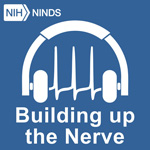Research continues to rule out brain’s immune system as key to fetal alcohol spectrum disorders
Tuesday, November 2, 2021
Researchers at the Del Monte Institute for Neuroscience at the University of Rochester continue to find evidence that the brain’s immune system may not be the culprit behind fetal alcohol spectrum disorders (FASD). It has long been thought that cells in the brain’s immune system called microglia are responsible for the neurological damage that occurs when this type of exposure happens.
“We looked for more subtle changes in microglia function this time,” said Ania Majewska, Ph.D., professor of neuroscience at the Del Monte Institute for Neuroscience, and lead author on the study published in Developmental Neurobiology. “We were not able to detect a difference in function leading us to believe that the defect may exist in other cell types. However, given the heterogeneity and complexity of microglial function, we are also exploring how different populations of microglia in different parts of the brain respond to alcohol.”
One out of every 100 babies born in the U.S. is diagnosed with FASD, which occurs when a child is exposed to alcohol in the womb. FASD can cause lifelong physical and cognitive impairments, such as poor impulse control and attention, learning disabilities, compromised fine motor skills, and delays in the ability of the brain to process visual and auditory information. There is no available treatment for FASD.
Majewska’s research initially poked holes in the idea that FASD is driven by damage caused in the brain by impaired microglia when her lab found no difference in brain activity in the area among mice exposed to alcohol early in development when compared to those who were not exposed.
In this recent work, researchers exposed mice to alcohol early in development and looked beyond the baseline of microglial movement. Using advanced imaging technology called two-photon microscopy the scientists observed how the microglia interacted with neuronal dendrites – part of the connection between neurons that enables neighboring nerves cells to communicate. They found no difference in this connection when comparing brains exposed to alcohol to brains that were not.
“The brain is made up of many neuronal types so it is possible other microglia-neuron interactions are changing, but it is not a general phenomenon,” said Majewska. “But just because these are immune cells doesn’t mean that they will be involved in every disorder or developmental perturbation. Narrowing down their exact roles is important in terms of targeting these cells for therapies for neurodevelopmental disorders.”
Additional co-authors of the study include Elissa Wong, Alexandra Strohm, Jason Atlas, and Cassandra Lamantia with the University of Rochester Medical Center. The research was funded by National Institute on Alcohol Abuse and Alcoholism.
Read More: Research continues to rule out brain’s immune system as key to fetal alcohol spectrum disordersDrs. Ania Majewska and Monique Mendes in a podcast for NINDS on F applications
Monday, March 1, 2021
 Dr. Ania Majewska and NGP alum, Dr. Monique Mendes, will be featured in The National Institute of Neurological Disorders and Stroke's Building Up the Nerve podcast on 3/5/2021. In this episode, our grantee guests discuss how they involved their mentor(s)/sponsor(s) in the application process to ensure the training plan reflects their individual needs and the mentor is able to provide the appropriate level of support and expertise to achieve those training goals.
Dr. Ania Majewska and NGP alum, Dr. Monique Mendes, will be featured in The National Institute of Neurological Disorders and Stroke's Building Up the Nerve podcast on 3/5/2021. In this episode, our grantee guests discuss how they involved their mentor(s)/sponsor(s) in the application process to ensure the training plan reflects their individual needs and the mentor is able to provide the appropriate level of support and expertise to achieve those training goals.
The podcast features Jaroslaw Aronowski, PhD, Professor, UTHealth McGovern Med School; Alexis S. Mobley, MS, PhD Candidate, UTHealth McGovern Med School; Ania Majewska, PhD, Professor, University of Rochester; Monique Mendes, PhD, Postdoctoral Researcher, Stanford University; Mark Wu, MD, PhD, Professor, Johns Hopkins University; Margaret Ho, PhD, Postdoctoral Fellow, Johns Hopkins University School of Medicine.
Spread the word.